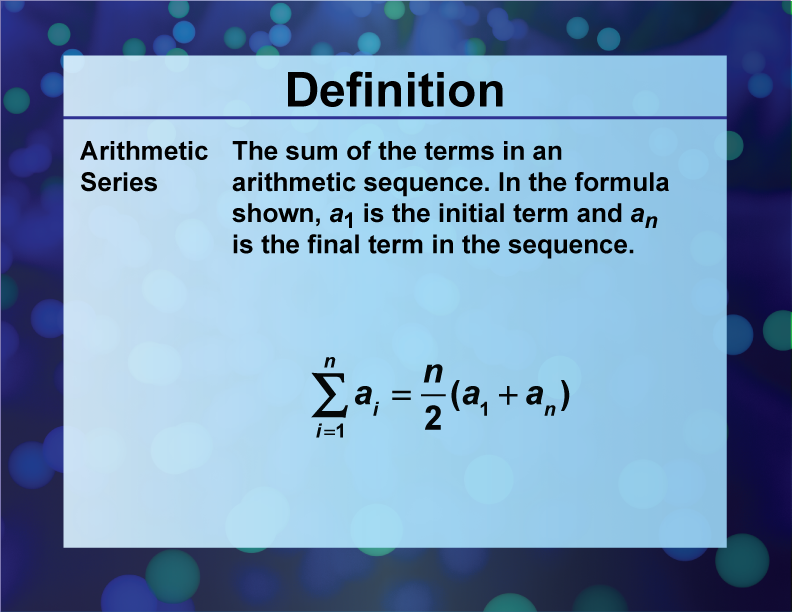
Display Title
Definition--Sequences and Series Concepts--Arithmetic Series
Display Title
Arithmetic Series

Topic
Sequences and Series
Definition
An arithmetic series is the sum of the terms of an arithmetic sequence.
Description
An arithmetic series is a significant concept in mathematics, especially in the study of sequences and series. It is formed by adding the terms of an arithmetic sequence. This concept is crucial for understanding how sums of linear patterns are calculated, which has applications in various fields such as finance, engineering, and computer science.
In real-world applications, arithmetic series can be used to calculate the total amount of money saved over a period with regular deposits, or to determine the total distance traveled when moving at a constant speed with regular intervals. Algebraically, the sum of the first n terms of an arithmetic series can be expressed as
Sn = n/2(a1 + an)
where Sn is the sum of the first n terms a1 is the first term, and an is the nth term.
Understanding arithmetic series is essential for math education as it helps students grasp the concept of summation and series, which are foundational for higher-level mathematics. It also aids in developing problem-solving skills and the ability to apply mathematical concepts to real-life situations.
For a complete collection of terms related to sequences and series click on this link: Sequences and Series Collection
| Common Core Standards | CCSS.MATH.CONTENT.6.SP.B.4, CCSS.MATH.CONTENT.HSF.IF.A.3, CCSS.MATH.CONTENT.HSF.BF.A.2, CCSS.Math.CONTENT.HSF.LE.A.2 |
|---|---|
| Grade Range | 6 - 9 |
| Curriculum Nodes |
Algebra • Sequences and Series • Series |
| Copyright Year | 2013 |
| Keywords | data analysis, arithmetic sequence, common difference, definitions, glossary terms, geometric sequence, common ratio |